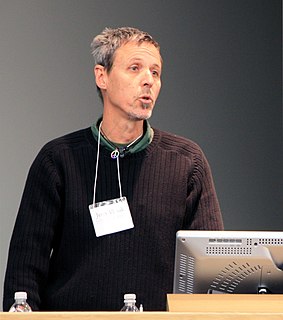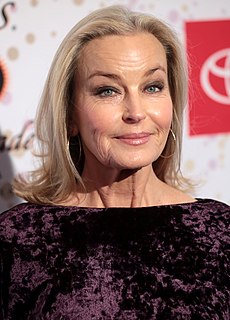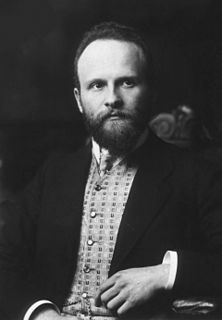A Quote by Jerry Vlasak
This is historically what happens whenever revolutionaries begin to take the oppression and suffering of their fellow beings seriously, whether human or nonhuman. It's regrettable that certain scientists are willing to put their families at risk by choosing to do wasteful animal experiments in this day and age.
Related Quotes
There is no limit to suffering human beings have been willing to inflict on others, no matter how innocent, no matter how young, and no matter how old. This fact must lead all reasonable human beings, that is, all human beings who take evidence seriously, to draw only one possible conclusion: Human nature is not basically good.
And people who believe in God think God has put human beings on earth because they think human beings are the best animal, but human beings are just an animal and they will evolve into another animal, and that animal will be cleverer and it will put human beings into a zoo, like we put chimpanzees and gorillas into a zoo. Or human beings will all catch a disease and die out or they will make too much pollution and kill themselves, and then there will only be insects in the world and they will be the best animal.
So far as this argument is concerned nonhuman animals and infants and retarded humans are in the same category; and if we use this argument to justify experiments on nonhuman animals we have to ask ourselves whether we are also prepared to allow experiments on human infants and retarded adults; and if we make a distinction between animals and these humans, on what basis can we do it, other than a bare-faced - and morally indefensible - preference for members of our own species?
Human beings are a part of the animal kingdom, not apart from it. The separation of "us" and "them" creates a false picture and is responsible for much suffering. It is part of the in-group/out-group mentality that leads to human oppression of the weak by the strong as in ethic, religious, political, and social conflicts.
I would not question the sincerity of vegetarians who take little interest in Animal Liberation because they give priority to other causes; but when nonvegetarians say that "human problems come first" I cannot help wondering what exactly it is that they are doing for human beings that compels them to continue to support the wasteful, ruthless exploitation of farm animals.
We do some experiments in humans, some in mice, and there are some questions that can only be answered in nonhuman primates. It's true that you can't immediately say that those experiments will translate into human health, but nevertheless, it is obvious that having an understanding of human memory is going to be important for human health.
Any glimpse into the life of an animal quickens our own and makes it so much the larger and better in every way." ... "Surely a better time must be drawing nigh when godlike human beings will become truly humane, and learn to put their animal fellow mortals in their hearts instead of on their backs or in their dinners.
If animals are no longer quite outside the moral sphere, they are still in a special section near the outer rim. Their interests are allowed to count only when they do not clash with human interests. If there is a clash - even a clash between a lifetime of suffering for a nonhuman animal and the gastronomic preference of a human being - the interests of the nonhuman are disregarded. The moral attitudes of the past are too deeply embedded in our thought and our practices to be upset by a mere change in our knowledge of ourselves and of other animals.
If we compare a severely defective human infant with a nonhuman animal, a dog or a pig, for example, we will often find the nonhuman to have superior capacities, both actual and potential, for rationality, self-consciousness, communication and anything else that can plausibly be considered morally significant.


































